Reading C.S. Lewis's Academic Books #3 - A Preface to Paradise Lost
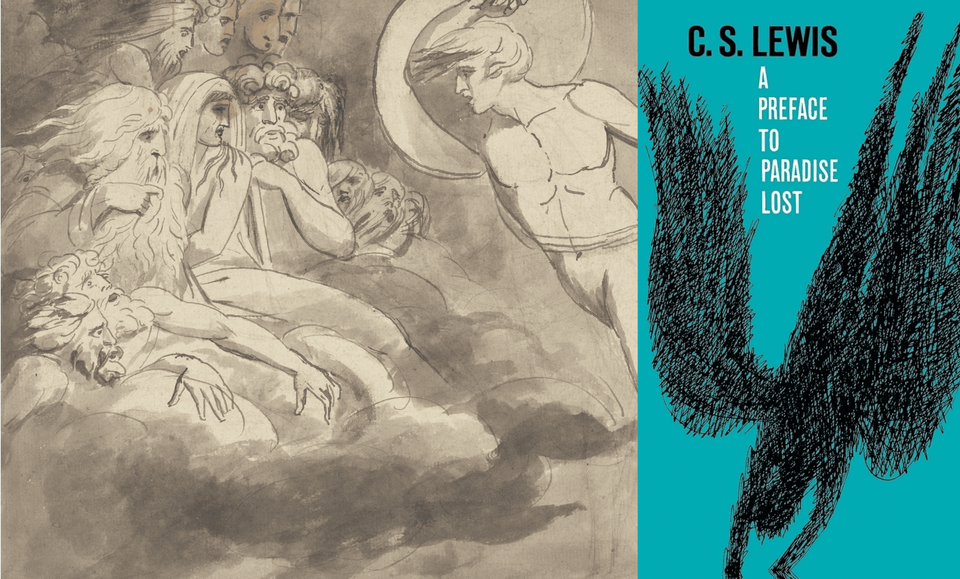
A Preface to Paradise Lost is the only one of C.S. Lewis’s academic books that I had actually read before (in part, at least). We covered it in my undergrad intro to British Literature when I was at UC Riverside.
It makes sense—even though English Literature in the Sixteenth Century is probably Lewis’s greatest work of literary criticism, it is A Preface to Paradise Lost that has seemingly had the most impact, with a notable influence on Milton studies and on reading Paradise Lost.
Why did Lewis write this preface? He walks us through a number of reasons, but the main thrust is similar to his goal in writing The Discarded Image: to correct misunderstandings and misinterpretations, just as he had wanted to correct flawed understandings of medieval cosmology.
What were those misunderstandings? Chiefly—what Paradise Lost is, whether it was a radical departure from Christian theology or not, and what role Satan plays in it (whether protagonist or antagonist). Looming large here is William Blake.
Paradise Lost is an epic poem, with many of the hallmarks of the genre. But Lewis takes care to split these into two categories—primary and secondary epics. Primary epics are those like The Iliad, Odyssey, or Beowulf, whereas Lewis listed The Aeneid and Paradise Lost as secondary. This did not have anything to do with quality; rather, it was a question of style and focus.

The key difference, for Lewis, between primary and secondary epic is actually the subject matter—or, rather, the lack of one. In writing about primary epic, Lewis floated that the reader “may have noticed that no mention is made of one characteristic which later critics have sometimes thought essential. Nothing has been said about greatness of subject.”
That’s because, in Lewis’s opinion, “the great subject (‘life the of Arthur, or Jerusalem’s fall’) was not the mark of primary epic. It enters the epic with Virgil, whose position in this story is central and who altered the very notion of epic.” The Odyssey, for instance, is not about some particular great theme. “[Homer’s] greatness,” writes Lewis, “lies in the human and personal tragedy built up against this background of meaningless flux.”
Virgil is different. Rather than create a pastiche of Homer, he took “a single national legend and treat[ed] it in such a way that we feel the vaster theme to be somehow implicit in it.” This was a revolution in the history of poetry.
Lewis was especially fascinated with The Aeneid, and he even wrote his own translation of the poem (though he never finished). But like Virgil, Milton tackles a Great Subject: in his instance, The Fall of Man. And this was, for Lewis, the only place left to go. After Virgil fashioned a story of the “destiny of Man” out the legend of the founding of Rome, there was no going back to the martial heroics of bronze age Trojans and Achaeans. “You cannot be young twice,” wrote Lewis.
In contradistinction to those that have seen something heretical or even blasphemous in Paradise Lost, Lewis takes the straight-line view and argues it is an orthodox, indeed, literally catholic, poem.
It is not a poem about “what one particular man thought and felt about the Fall.” To read it, instead, is “to take part, under [Milton’s] leadership, in a great memetic dance of all Christendom, ourselves soaring and ruining from Heaven, ourselves enacting Hell and Paradise, the Fall and the repentance.”
Satan: Hero, Anti-Hero, Villain?
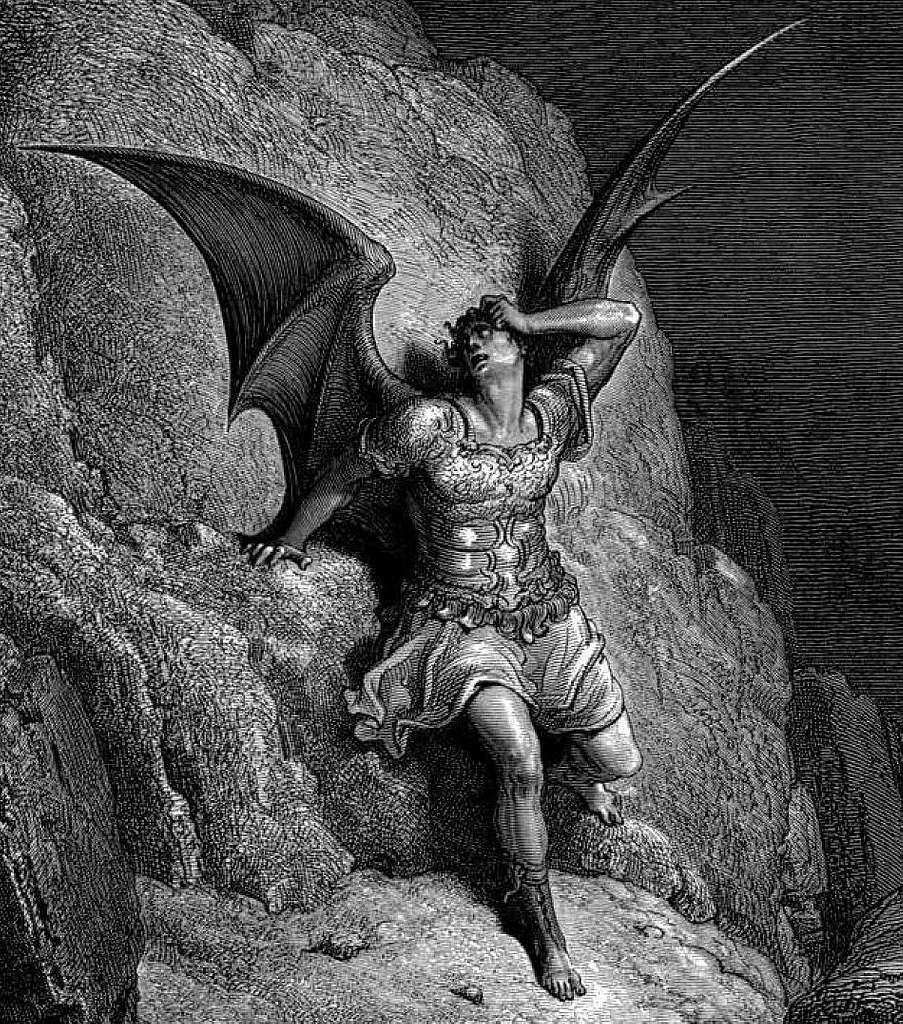
If this is true, then, what to make of the role Satan plays in the poem?
Owing an awful lot to William Blake, there has been a tradition of seeing Satan not as the villain but the hero of Paradise Lost, and Milton as either a rebellious and revisionist opponent of Christian theology or at least an unwitting promoter of the devil’s cause.
Wrote Blake in The Marriage of Heaven and Hell, “The reason Milton wrote in fetters when he wrote of Angels and God, and at liberty when of Devils and Hell, is because he was a true poet, and of the Devil’s party without knowing it.”
As Leo Damrosch wrote in his intellectual biography of Blake Eternity's Sunrise, the Church Fathers were aware that the story of Prometheus (stealing fire from heaven for humanity’s benefit) could be read in parallel with Satan’s fall from heaven (like lightning). “Not surprisingly,” writes Damrosch, “Christian theologians held that Prometheus was right to rebel whereas Satan was wrong. For Blake, however, both rebellions are equally justified, since in his opinion the God of Genesis is just as tyrannical as Zeus.”
We are familiar with the rousing rhetoric and power of Satan’s monologues in the beginning of the poem, culminating in his resounding declarations of defiance to the devilish city Pandemonium and his personal creed that it is “better to reign in hell than to serve in heaven.”
Blake also felt there was an incongruity in the way that Milton devoted himself to the Republican cause in English politics, opposing the king. “Milton rebelled against the earthly tyrant,” continues Damrosch, “but in Blake’s view, he tried in vain in Paradise Lost to justify the tyranny of a patriarchal God.” Blake wasn’t a Satanist, though. He was more hostile to classical depictions of God and Milton’s own personally tyranny (his theology, yes, but also the way he treated his family, both seemingly at odds with his anti-authoritarian politics).
It's here that Lewis entered to rebut Blake.
Lewis clearly had a bone to pick with him, as is evident in his popular writing too. In the intro to The Great Divorce, Lewis writes that he titled the book as a contrast. “Blake wrote the Marriage of Heaven and Hell,” he begins:
If I have written of their Divorce, this is not because I think myself a fit antagonist for so great a genius, nor even because I feel at all sure that I know what he meant. But in some sense or other the attempt to make that marriage is perennial. The attempt is based on the belief that reality never presents us with an absolutely unavoidable ‘either-or’; that, granted skill and patience and (above all) time enough, some way of embracing both alternatives can always be found; that mere development or adjustment or refinement will somehow turn evil into good without our being called on for a final and total rejection of anything we should like to retain.
This, for Lewis, was a “disastrous” error. “Evil can be undone,” he admits, “but it cannot ‘develop’ into good.”
The Great Divorce, though, owes its structure more to Dante than to Milton. It is in A Preface to Paradise Lost where Lewis defends Milton and dedicates himself to refuting Blake.
Against William Blake

For one thing, Lewis contends, there is no contradiction in Milton’s orthodox understanding of God’s sovereignty and his personal support for political republicanism.
This isn’t a paradox. We have to go back to a more medieval mindset and consider the nature of hierarchy in this old world. “The goodness, happiness, and dignity of every being consists,” Lewis summarizes in the Preface, “in obeying its natural superior and ruling its natural inferiors.” Justice of rule, then, “depends wholly on the nature of the parties, not in the least on any social contract.”
This sounds perhaps preposterous to modern American ears, as we are accustomed to view any kind of hierarchy as inherently authoritarian and offensive. But for Milton, the dignity and rights of the individual were rooted in a hierarchical conception of order—with God at the top. And, in fact, these two things necessitated each other.
The proof that this isn’t unique to Milton, and might actually be related, can be found in the way that Calvinism (of which, as I’ve covered before, Lewis was not exactly an enthusiastic proponent) predominated in those places where republicanism rose to the forefront of politics: most notably Calvin’s Geneva and the Puritans in New England. There is a weird and surprising correlation between the most authoritarian theology coexisting with (and maybe leading to) the least authoritarian politics.
This was axiomatic for a lot of American historians in the 20th century. It was, they believed, the Calvinism of the Puritans that informed their devotion to republican values. One finds it in Perry Miller or Lewis Mumford (who pointed out that it wasn’t a coincidence both Calvin and Rousseau were from Geneva).
For Lewis, too, these things were related. And so, Milton’s hostility to tyrants is actually reflected in his sovereign God and the erratic and ultimately vicious rebellion of Satan.
For all his stirring rhetoric and alluring bombast in the beginning of Paradise Lost, Satan is not the hero. And, in fact, thinking otherwise is the result of seduction by his powerful words. When Milton calls him a “sultan,” we have to think back to Milton’s time—the leader of the Ottoman Empire was the most feared threat to European independence (consider that the Ottoman army had marched on Vienna in the 17th century). The rebellion which Satan heralds is simply a mask and another name for tyranny. This spastic, compulsive, reactionary behavior is not freedom. Satan is driven by grievance and “a sense of injured merit,” which (as Lewis notes) is one of the least attractive qualities a person can have. God never harmed him; it was only his lust for power that was “impaired,” and it was his sense of personal jealousy that led to rebellion. His manner of speech is incessant autobiography (which might make him an excellent American politician). There were no higher principles at work.
We can see just how pathetic Satan is by his devolution throughout the poem. Sure, he starts high and mighty, but each incarnation he takes gets smaller and more base—a gigantic angel in the beginning, by the end be becomes bestial: a toad, then lastly a snake (which finally loses its legs).
His rebellion sounds fancy, but the end point is a bunch of snakes writhing about in Pandemonium. Satan is all talk. And, for Lewis, if you thought otherwise, then you simply fell for it. Maybe we shouldn’t be so hard on Adam and Eve?
Adam and Eve (and C.S. Lewis)

Lewis was thinking about Paradise Lost throughout his life. Not only did he write about it as a literary scholar, and not only did resistance to Blake inform The Great Divorce, but Perelandra is a kind of science-fiction retelling of the Fall of Man. But, as Richard L.W. Clark observes, it’s not paradise lost or regained—it’s paradise retained.
The most direct connection between Perelandra and A Preface to Paradise Lost is in Lewis’s treatment of Adam and Eve.
He writes, in the Preface, that when he first read the poem, his thinking was too much affected by evolutionary biology to consider what Milton was doing with humanity’s primeval parents. Thinking in terms of evolution “led me to think of early men, and therefore a fortiori of the first men, as savages. The beauty I expected in Adam and Eve was that of the primitive, the unsophisticated, the naif.” He wanted, he admits, “an Adam and Eve whom I could patronize.” But Milton wouldn’t allow it.
Instead, they are depicted as regal and elegant, the pinnacle of what human life could be. Lewis cites St. Ambrose, who wrote that they were heavenly beings, and St. Augustine, who wrote that Adam’s “mental powers surpassed those of the most brilliant philosopher as much as the speed of a bird surpasses that of a tortoise.”
One can see this presentation of Adam and Eve less as childish newborns in adult bodies as much as the Lord and Lady of the planet in Perelandra, where Lewis has Elwin Ransom arrive to thwart Satan’s attempt to make another planet fall.
Lewis does not bother to try to harmonize evolutionary biology with the story of Adam and Eve in Perelandra. He does make a gesture this way The Problem of Pain, which was written around the same time, so it’s hard to know what to make of Lewis’s stance on science and evolution. Publicly, he seemed to accept it; privately, he seemed to have some doubts.
But, as he points out regarding Milton, the science can be tertiary to the storytelling. In Paradise Lost, it’s not clear whether the cosmos is geocentric or heliocentric. Milton hedged his bets—it wasn’t that important to the narrative.
The Ordinary Theology of Paradise Lost
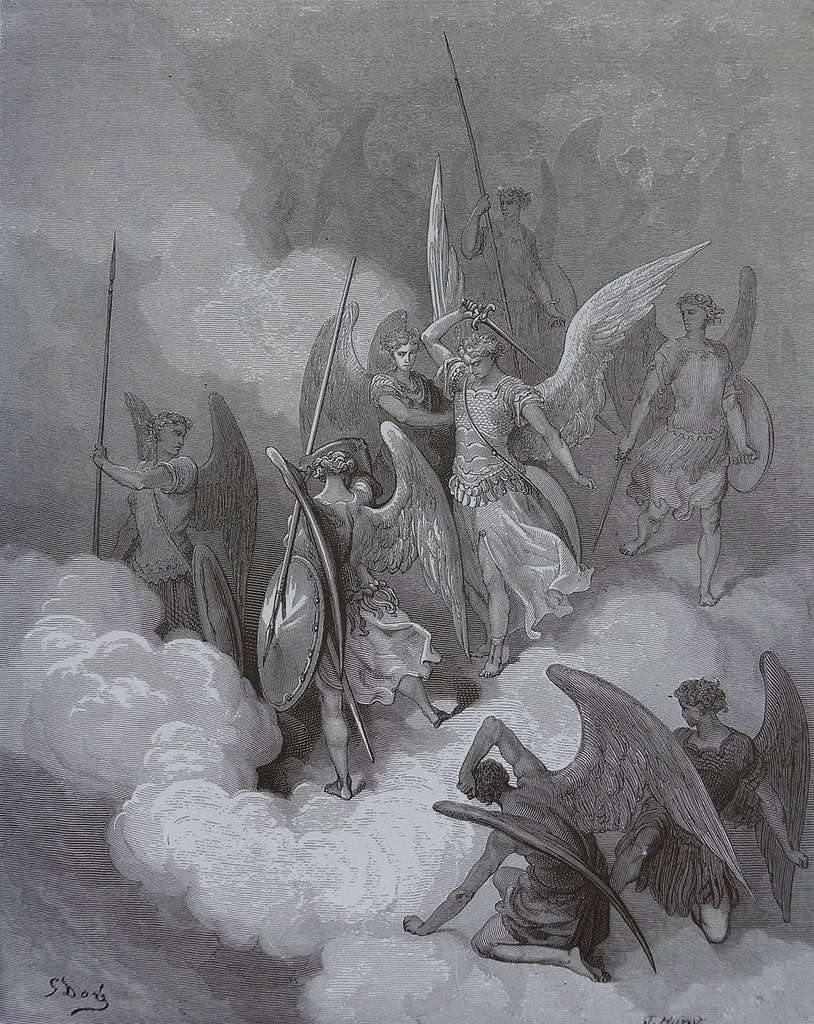
The theology of Paradise Lost is, Lewis argues, fairly ordinary. We know Milton was an Arian, but Lewis does not believe this affects the poem as much as people suspect. If you go heresy hunting you might find something, but if we didn’t know Milton was an Arian from his non-fiction (and, Lewis contends, Milton was an honest writer so it wasn’t like he was hiding it) then we probably would never have realized.
In truth, the theology of Paradise Lost is the theology of St. Augustine. The depiction of Adam and Eve, the treatment of sin, the presentiment of the eventually atonement—it’s all straight out of Augustine (even sex existing in the garden of Eden before the Fall). It has his insight but also drawbacks.
Where Lewis actually agrees with Blake is in Milton’s depiction of God. He admits that the charge of a poor and unsatisfactory portrayal of God has merit, though he does contend that one shouldn’t look too deep into this. It’s not due to the fact that Milton was an Arian or the supposition that he was secretly on Satan’s side; rather, it’s simple that this is not an easy thing to do, and Milton did not take the cheap path by making God seem “sufficiently awful, mysterious, and vague.” Lewis suggests, perhaps, that “many of those who say the dislike Milton’s God only mean that they dislike God.”
I’m not sure I would go that far, and I don’t think that’s fair to Blake (after all, the Augustinian/Calvinist version of God draws plenty of detractors from inside the Christian fold, with Lewis sometimes among them (perhaps suggesting, I think, that Lewis might be a bit too defensive of Milton here)). But the point is still solid.
Worse offenses, however, are both Milton’s rendering of heaven (too similar to Mount Olympus), and, in what is probably a universal criticism, the “future history” passages (they simply don’t work).
When the future of humanity and our eventual salvation in Christ’s death and resurrection are revealed to Adam in order to give hope, the result is less than compelling. “Such an untransmuted lump of futurity,” Lewis writes, “coming in a position so momentous for the structural effect of the whole work, is inartistic. And what makes it worse still is that the actual writing in this passage is curiously bad.” This is a common sentiment. As Lewis borrows from Samuel Johnson, “The story cannot possibly be told in a manner that shall make less impression on the mind.”
But these are parts of the story we all know anyway, and the point, after all, is the end—with the atonement. (Though it is interesting that, in Paradise Regained, Milton chose to focus on the temptation on the desert and not the crucifixion and resurrection).
The Literary Advantage of Belief
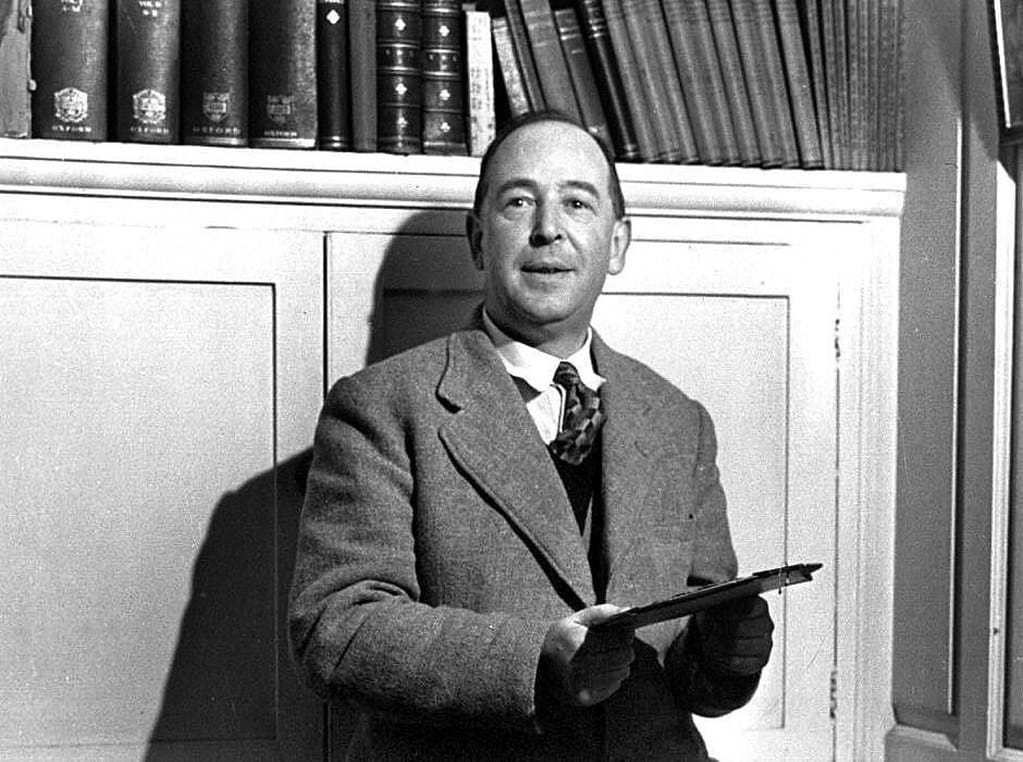
So the theology is classic Augustinianism, Satan is not the hero, and the science of Paradise Lost is intriguing. What’s interesting in all this is how often Lewis needed to state the obvious.
Of course, Satan in not the hero. How could he be? Milton likely could not have conceived of a world in which such a thought would be entertained. “Men still believed that there really was such a person as Satan, and that he was a liar,” Lewis observes. “The poet did not foresee that his work would one day meet the disarming simplicity of critics who take for gospel things said by the father of falsehood in public speeches to his troops.”
This is an interesting observation of the way that cultural evolution and the changing perspective on religion drastically affected the poem’s reception.
Part of the difficulty here is that the common language and concepts of Christian thinking are no longer the framework through which such literature is approached. And, often, biblical literacy itself is so low that it is difficult to actually read or teach classics such as Paradise Lost.
I’ve brought this up in my classes before, where I’ve told my students rather bluntly that (when reading literature or watching classic film) they really have no choice but to become familiar with the Bible and with Greek mythology, or they simply will miss out on too much to fully grasp what they’re reading or seeing.
Predictably, this was met with resistance. One time, a student emitted a sort of perturbed grunt. But I knew that she was a fan of Blade Runner 2049 from an early conversation, so I brought that movie up: it’s a retelling of the nativity of Christ, for one, but even more explicitly, it openly cites the Nicene Creed at one point, as well as Genesis 30:22. It’s saturated with Christian and classic imagery (the first Blade Runner cites William Blake, too). There’s simply no way around it.
But for Lewis, he saw this challenge as less of a frustration and more of an opportunity. His Christianity was an advantage in teaching Paradise Lost, because he could illuminate what had been forgotten—or what had never even been known in the first place. “But for the student of Milton,” Lewis writes, “my Christianity is an advantage.” After all, he concludes humorously, “what would you not give to have a real, live Epicurean at your elbow while reading Lucretius?”
It is perhaps this approach which makes A Preface to Paradise Lost Lewis’s most lasting bit of literary criticism. It is, as I said before, the only piece of his writing I read during regular undergraduate education. It continues to teach today, Lewis’s perspective continues to be an advantage to those who might not be familiar, and I’m sure it will continue to do so.
If you’re interested in the first two pieces of this series on Lewis’s academic books, they can be found below:
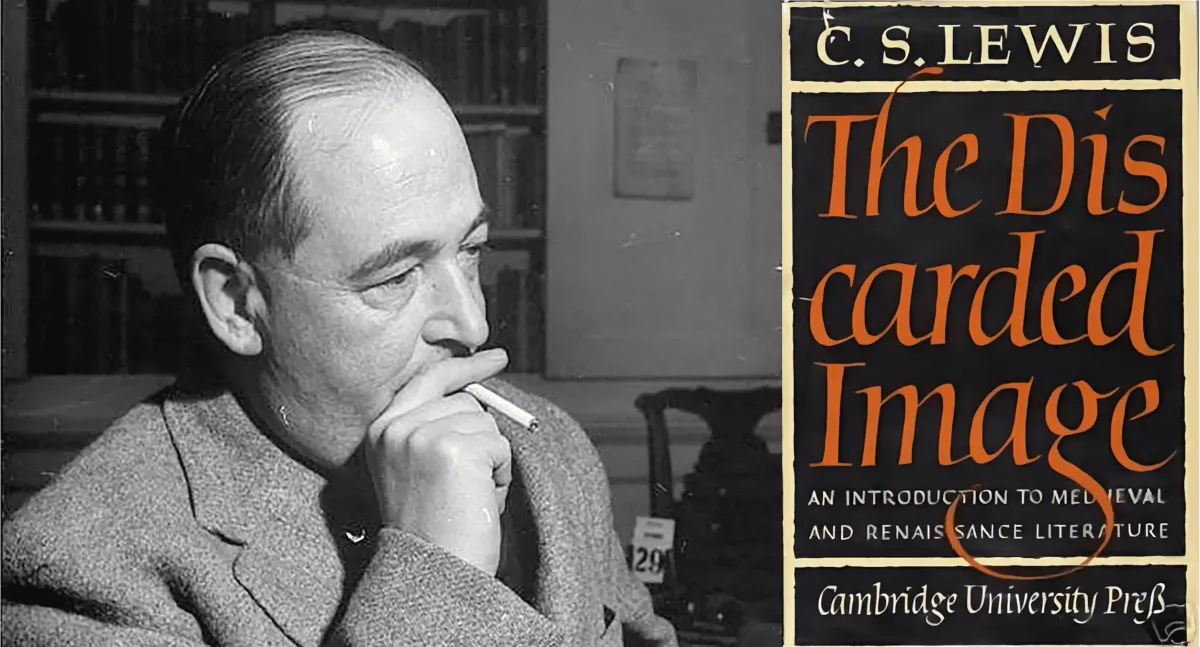
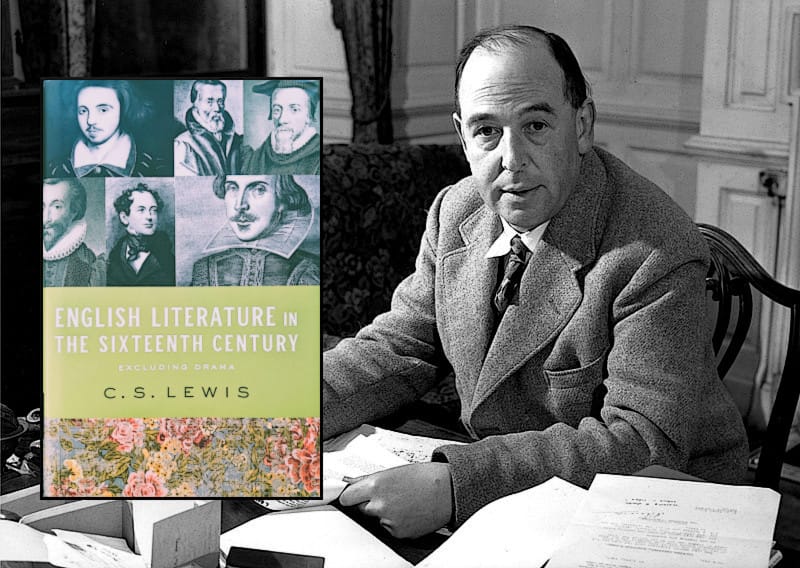





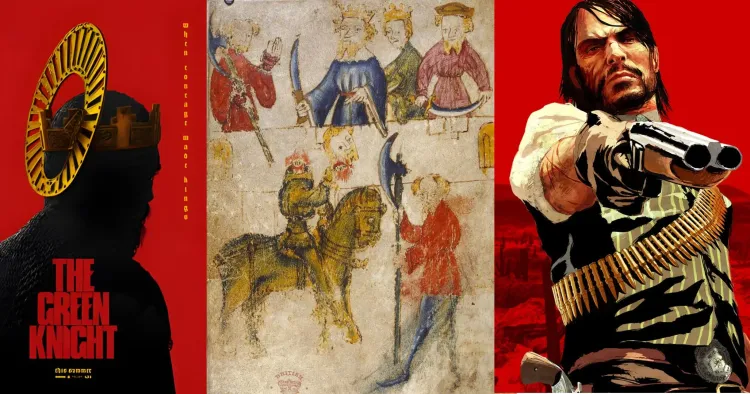
Member discussion